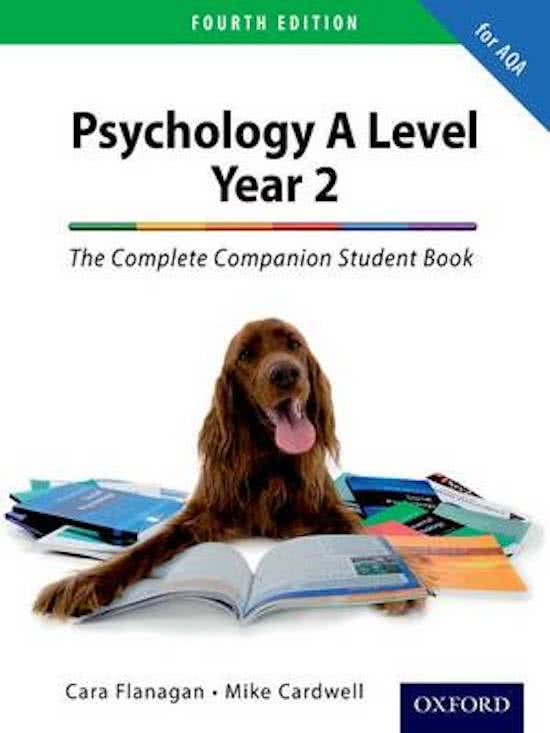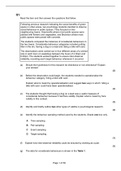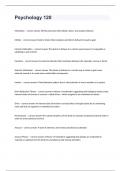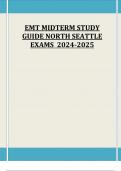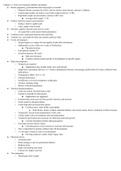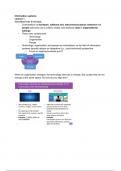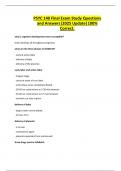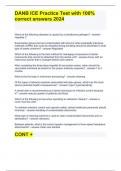Read the item and then answer the questions that follow.
Following previous research indicating the social benefits of green
space in urban areas, two psychology students decided to observe
social behaviour in public spaces. They focused on two
neighbouring towns, Greensville where most public spaces were
planted with flowers and vegetables, and Brownton where most
public spaces were paved with concrete.
The students compared the instances of considerate behaviours in
the two towns. Considerate behaviour categories included putting
litter in the bin, having a dog on a lead and riding a bike with care.
The observations were carried out in four different areas of a similar
size in each town on weekdays between the hours of 4.30pm and
6.00pm. The students worked together to ensure inter-observer
reliability, recording each target behaviour whenever it occurred.
(a) Should the hypothesis for this research be directional or non-directional? Explain
your answer.
(2)
(b) Before the observation could begin, the students needed to operationalise the
behaviour category ‘riding a bike with care’.
Explain what is meant by operationalisation and suggest two ways in which ‘riding a
bike with care’ could have been operationalised.
(4)
(c) The students thought that having a dog on a lead was a useful measure of
considerate behaviour because it had face validity. Explain what is meant by face
validity in this context.
(3)
(d) Identify and briefly outline two other types of validity in psychological research.
(4)
(e) Identify the behaviour sampling method used by the students. Shade one box only.
A Time sampling
B Pair sampling
C Event sampling
D Target sampling
(1)
(f) Explain how inter-observer reliability could be ensured by working as a pair.
(3)
(g) The data for considerate behaviours is shown in the Table 1.
Page 1 of 59
, Table 1
Considerate behaviours
Riding bike
Litter in bin Dog on lead
with care
Greensville 23 23 10
Browntonn 10 17 9
The students noted that overall more considerate behaviours occurred in
Greensville than in Brownton.
Calculate the ratio of considerate behaviours observed in Greensville to considerate
behaviours observed in Brownton. Show your workings and present your answer in
the simplest form.
(3)
(h) The students carried out a Chi-square test on their data.
Explain why the Chi-square test was an appropriate test to use in this case.
(3)
(i) In order to interpret the results of the Chi-square test the students first needed to
work out the degrees of freedom. They used the following formula.
Degrees of freedom (df) = (r–1) x (c–1)
r = number of rows and c = number of columns
Calculate the degrees of freedom for the data in Table 1. Show your workings.
(2)
(j) The calculated value of Chi-square was 6.20. Referring to the Table 2 below, state
whether or not the result of the Chi-square test is significant at the 0.05 level of
significance. Justify your answer.
Table 2
df Levels of significance for a one-tailed test
0.10 0.05 0.025 0.01
Levels of significance for a two-tailed test
0.20 0.20 0.05 0.02
1 1.64 2.71 3.84 5.41
2 3.22 4.60 5.99 7.82
3 4.64 6.25 7.82 9.84
4 5.99 7.78 9.49 11.67
To be significant at the level shown the calculated value of Chi Square must be equal to or greater than
the critical/table value
(3)
(k) In the discussion section of their report of the investigation the students wanted to
further discuss their results in relation to levels of significance.
Write a short paragraph the students could use to do this.
(4)
(l) As a follow-up to their observation the students decided to interview some of their
Page 2 of 59
, peers about inconsiderate behaviours in their 6th Form Centre. The interviews were
recorded.
Explain how the students could develop their interview findings by carrying out a
content analysis and why content analysis would be appropriate in this case.
(3)
(m) Suggest one inconsiderate behaviour that the students might focus on in their
content analysis.
(1)
(Total 36 marks)
Q2.
A researcher investigated the effectiveness of typical and atypical psychotics in
schizophrenia patients with either negative or positive symptoms.
Percentages of patients with either negative or positive symptoms, responding well
to typical or atypical antipsychotics.
Number of Number of
patients patients
responding well to responding well to
atypical typical
antipsychotics antipsychotics
Patients with
negative 30 16
symptoms
Patients with
positive 60 60
symptoms
What does the data in the table seem to show about the effectiveness of typical and
atypical antipsychotics in the treatment of schizophrenia?
(Total 4 marks)
Q3.
A psychologist was interested in the role of sensation-seeking in the development of
addictive behaviour. She tested ten participants addicted to smoking (Group A) and ten
participants who had no addictive behaviours (Group B). Each participant was given a
questionnaire that measured sensation-seeking. Scores on the questionnaire are given in
the table below:
Sensation seeking scores for those with addictive behaviours and for those with no
addictions
Group A Score on Group B (No Score on
(Addicted to sensation- addictive sensation-
smoking) seeking behaviours) seeking
questionnaire questionnaire
Page 3 of 59
, 1 65 1 16
2 32 2 25
3 25 3 27
4 29 4 24
5 28 5 59
6 30 6 26
7 18 7 33
8 30 8 21
9 35 9 18
10 28 10 23
Median Median
Complete the table by calculating the median and range for the two groups. Why did the
psychologist use the median rather than the mode?
(Total 4 marks)
Q4.
Prison staff compared two methods of managing anger in offenders. One group of
offenders took part in cognitive therapy. Another group of offenders took part in discussion
therapy.
After one month following the training, levels of anger for each individual were rated by
prison staff on a scale of 0 – 100. The results are given in the table below:
Ratings of anger in offenders given either systematic CBT anger management
training or general advice
Cognitive Anger Discussion Anger
Group rating group rating
1 37 1 44
2 45 2 22
3 23 3 74
4 17 4 36
5 41 5 66
6 32 6 63
7 27 7 44
Page 4 of 59

